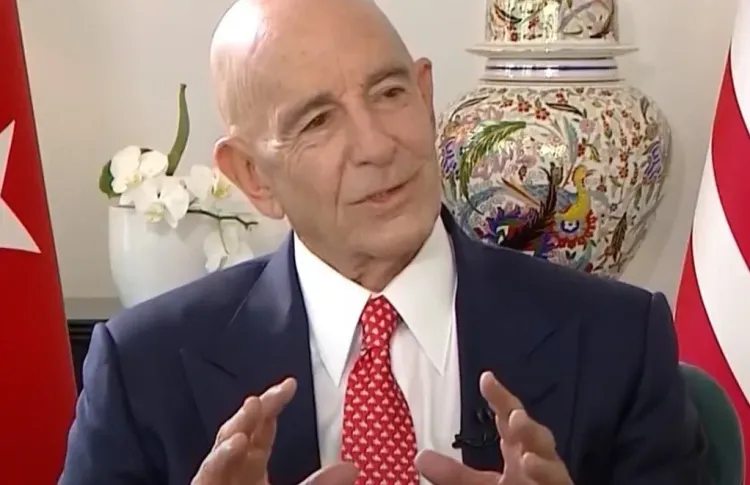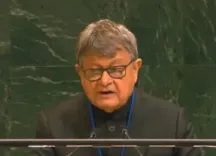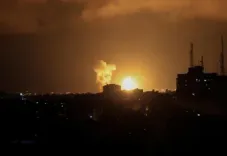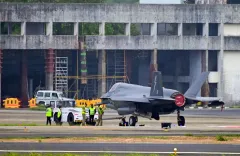What is the role of US diplomacy in the Lebanon-Israel ceasefire?

Synopsis
Key Takeaways
- US diplomacy is focused on Lebanon’s sovereignty and peace.
- A ceasefire is in place but has not been effective.
- Disarmament of Hezbollah is recognized as an internal matter.
- Lebanon is committed to establishing authority through its armed forces.
- Ongoing Israeli military actions complicate the ceasefire.
Beirut, July 22 (NationPress) US special envoy Thomas Barrack emphasized the importance of Washington's diplomatic initiatives to uphold Lebanon's sovereignty and foster a peace process, highlighting that the US cannot impose its will on Israel.
"The US has no role in forcing Israel into any actions," Barrack stated during a press conference after his discussions with Lebanese Prime Minister Nawaf Salam.
On Sunday, Barrack, who is also the US ambassador to Turkey and the special envoy for Syria, arrived in Beirut for his third visit since June. He met with senior officials as well as political and religious leaders, according to Xinhua.
Despite a ceasefire agreement being in place between Lebanon and Israel, Barrack admitted that it has not been effective. He acknowledged the existence of underlying issues contributing to its failure and affirmed that addressing these challenges is a collaborative endeavor currently in progress.
The US envoy expressed that the aim of US diplomatic actions is to utilize its influence in order to facilitate a peaceful resolution to the ongoing conflict.
Barrack described the disarmament of Hezbollah as "a significantly internal issue," indicating that Washington is prepared to collaborate with the Lebanese government to explore potential avenues of support.
On the same day, Lebanese President Joseph Aoun presented Barrack with a draft memorandum detailing Lebanon's commitments following the ceasefire with Israel, which came into effect on November 27, 2024.
As per Lebanon's presidency, the memorandum reiterates the country’s commitment to asserting full state authority throughout its territory via its armed forces, restricting weapon possession to the Lebanese military, and ensuring that the decisions regarding war and peace remain with Lebanon's constitutional institutions.
This process is set to occur alongside efforts to maintain Lebanese sovereignty along all international borders, initiate reconstruction initiatives, and commence economic recovery.
Despite the ceasefire agreement facilitated by the US and France, which mandated a complete Israeli withdrawal from southern Lebanon, the Israeli military has intermittently conducted strikes in Lebanon, claiming they are aimed at neutralizing Hezbollah "threats." Israel continues to maintain a presence at five strategic positions along the Lebanese border, despite a deadline for full withdrawal set for February 18.









